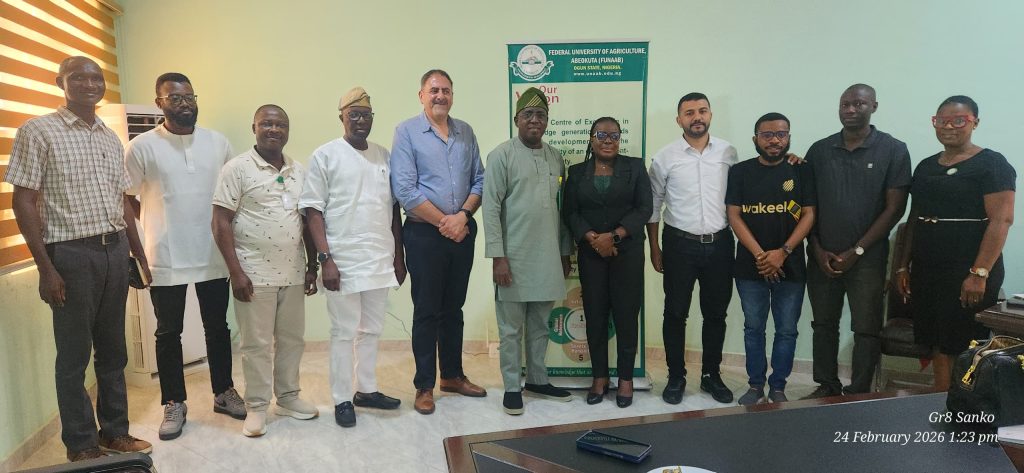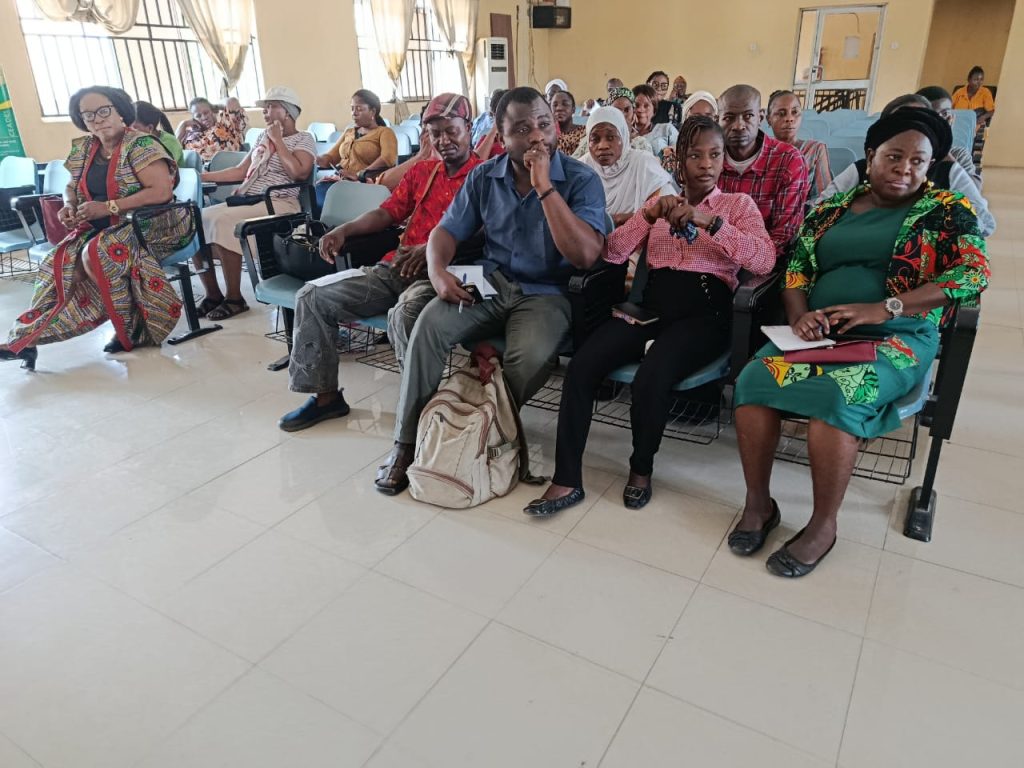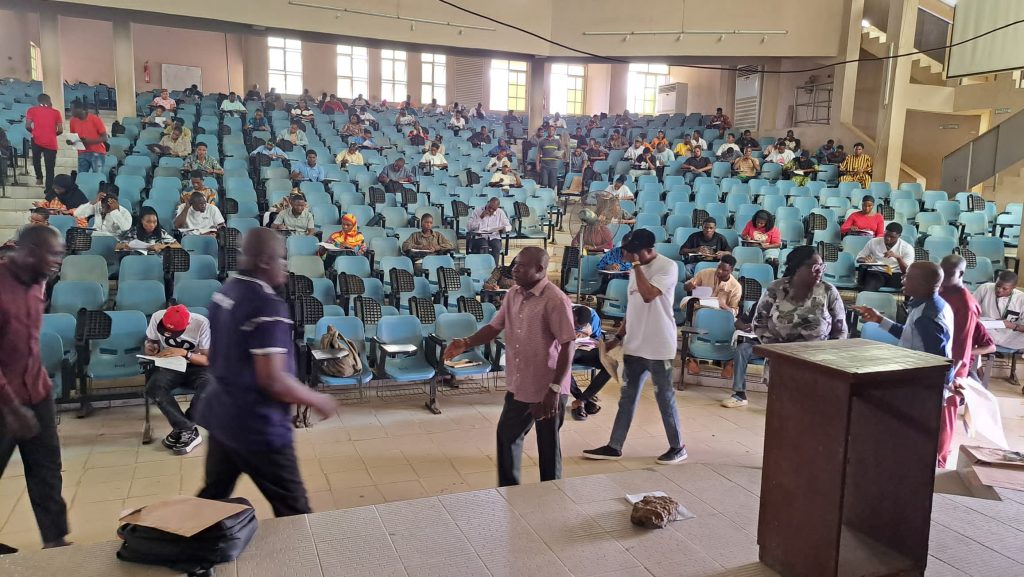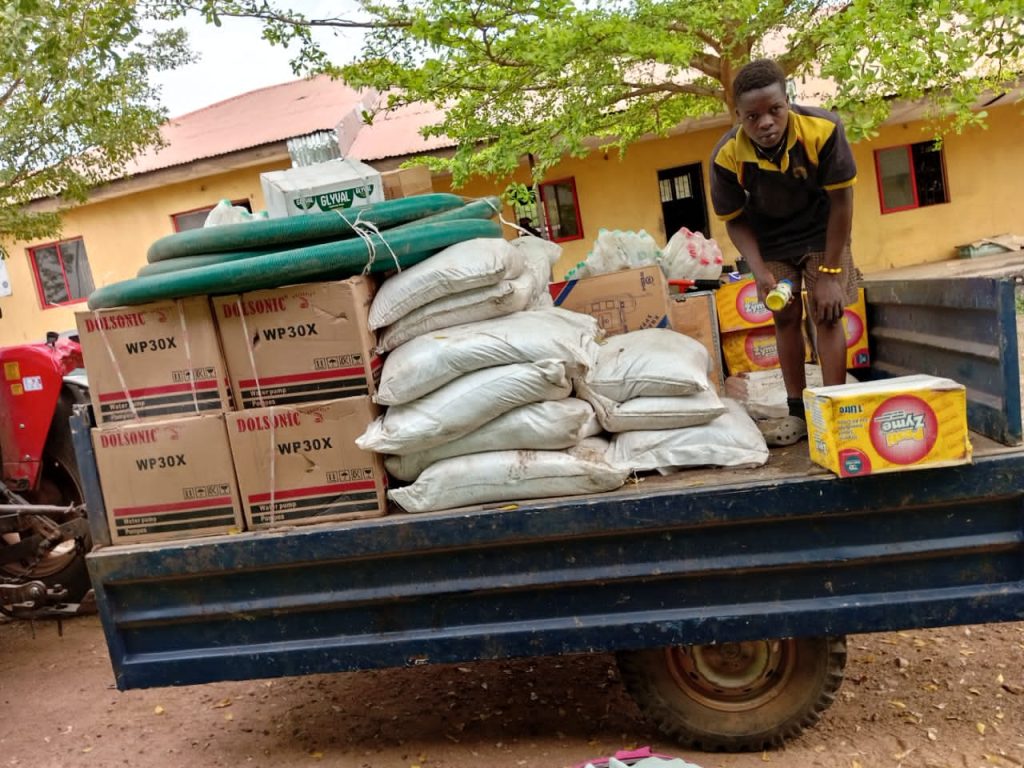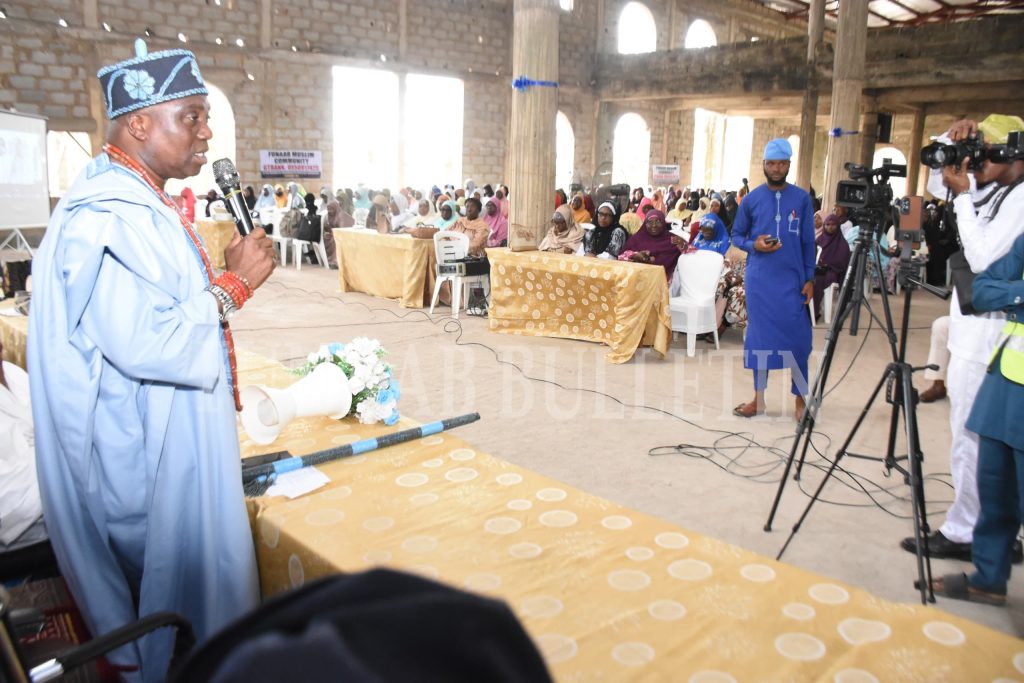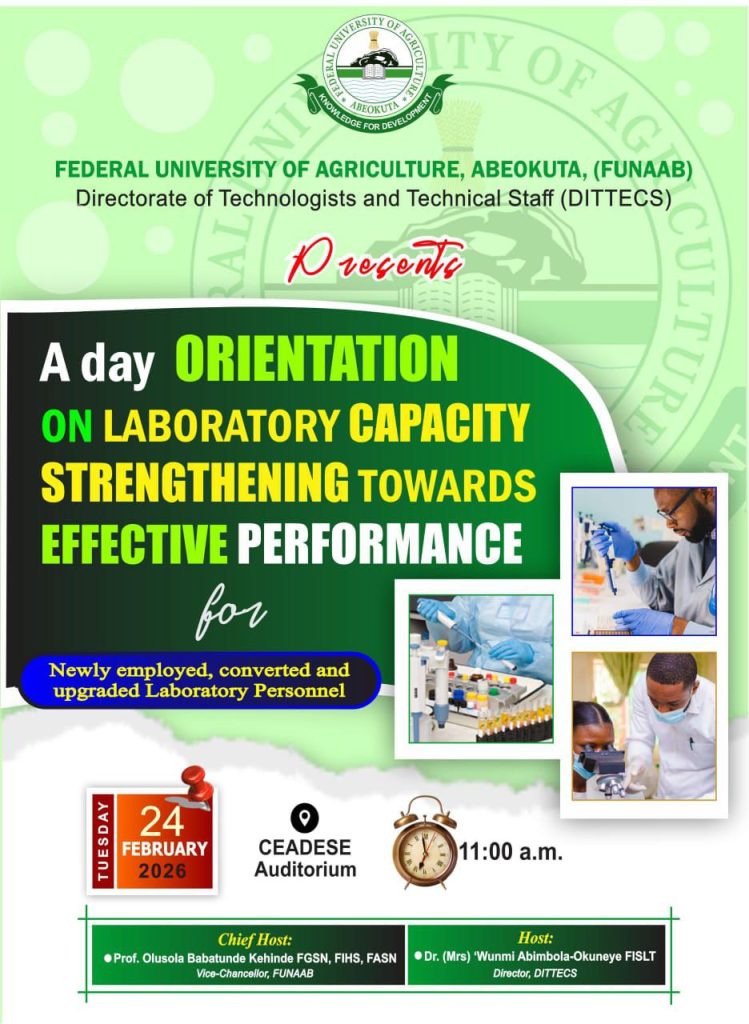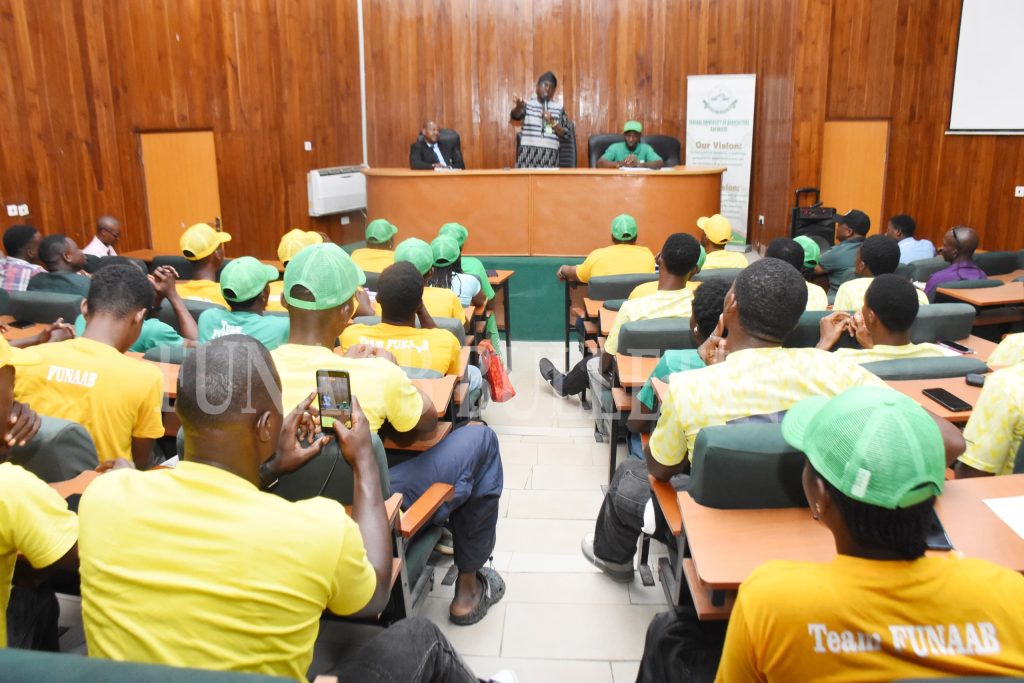Last Updated on July 24, 2024 by Olasunkanmi Olajide
By Joy Adeyiga
As part of efforts geared towards agricultural revitalisation on campus, the Federal University of Agriculture, Abeokuta (FUNAAB), in collaboration with HarvestField Industries Limited, today, July 23, 2024, began the cultivation of 250 hectares of land on campus for soybean production.
Recalled that the University forged a significant partnership through a Memorandum of Understanding (MoU), with HarvestField in May 2024 to maximise agricultural productivity on unoccupied land.

During an inspection tour of the project, the Vice-Chancellor, Prof. Babatunde Kehinde, highlighted the partnership’s robust marketing strategy, noting the high demand for soybeans across various industries.
He stated that a dedicated team comprising representatives from both FUNAAB and HarvestField would oversee the marketing process, ensuring a ready market for the crops produced.
The Vice-Chancellor further stated that under the agreement, FUNAAB provided the land, while HarvestField Industries would supply the necessary resources for cultivation, including the planting of maize, cassava, and soybean by the end of the current planting season.
Additionally, Prof. Kehinde, noted that there were plans to explore the cultivation of other crops to increase the diversity and resilience of the agricultural output, stressing that the initiative underscored FUNAAB’s commitment to advancing agricultural practices and boosting local food production.
In a related development, FUNAAB has also signed an MoU with ASSETRISE to cultivate 100 hectares of yam in May 2024, which aimed to produce more than one million tubers over five harvest years.

The project has also begun, with yam seedlings being transplanted from the nursery onto the cleared land.
Emphasising the importance of the collaborative efforts, the Vice-Chancellor who is a Professor of Plant Breeding and Genetics noted that the partnership was expected to generate employment opportunities, as managing 250 hectares would require significant manpower.
According to him, accommodation would be provided for farmers on-site, and some existing staff members who were experts in the field would be redeployed to support the project, while new hires would be made.
Prof. Kehinde, a Fellow of the Genetics Society of Nigeria, outlined several benefits of the projects, including expanding arable land, providing internship opportunities for students, improving crop production for Ogun state and Nigeria, as well as increasing the University’s Internally Generated Revenue (IGR).

Regarding security, the Vice-Chancellor disclosed that the Agro-Rangers security outfit would be engaged to address any security concerns on the farms.
He added that the partnerships marked a new era of agricultural production and academic collaboration, promising significant advancements in crop yield and University development.
Meanwhile, the Directorate of University Farms (DUFARMS) has planted five acres of maize, two acres of soybeans, groundnuts, and various other arable crops to enhance agricultural productivity in the University.
Author
-
Mr. Olajide is a seasoned professional with over a decade of expertise in the fields of Public Relations, Media and Communications. He currently holds the position of Assistant Director, Media.
View all posts


